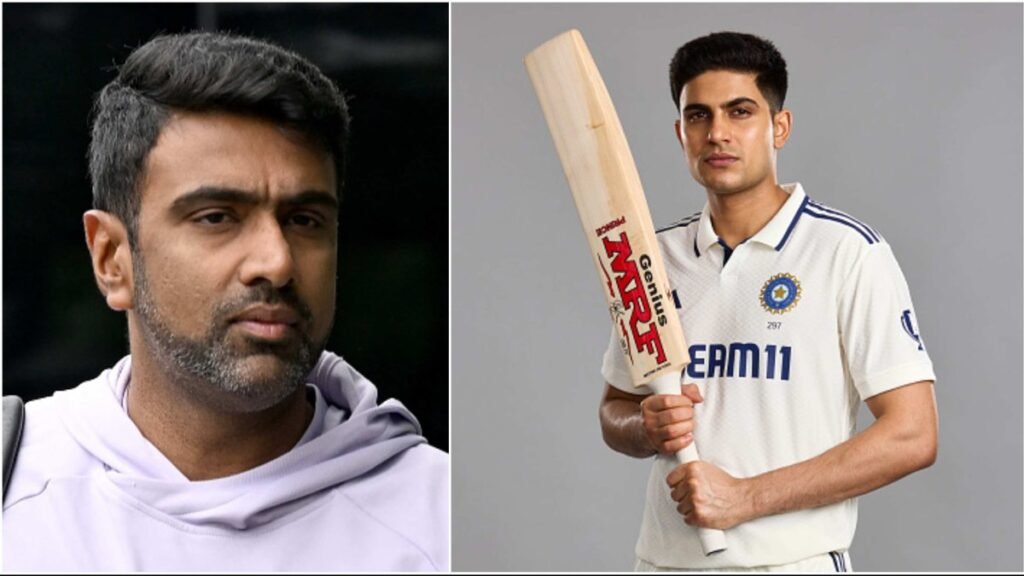
Indian off-spinner Ravichandran Ashwin, never one to shy away from offering insightful perspectives, has weighed in on the recent elevation of Shubman Gill to a high-profile leadership role, expressing his concerns over the immense pressure and public scrutiny surrounding the young batter. In a candid remark, Ashwin suggested that Gill might already be feeling the weight of expectations, and warned that the early phase of his tenure will be crucial in shaping both his batting form and leadership trajectory.
“I think Gill is already too overwhelmed by the attention and responsibility he has got. If I was in his place with such a high-pressure job, I would want to have a very good start as a batsman,” Ashwin said, hinting at the psychological toll that comes with captaining in the Indian cricket setup—a role famously known for its glory but equally notorious for its brutal expectations.
Shubman Gill, hailed as one of the brightest young batting talents of his generation, has been fast-tracked into a leadership role following a phase of transition in Indian cricket. With Rohit Sharma and Virat Kohli expected to take a step back from red-ball commitments in the near future, the selectors appear to be building a new core, with Gill earmarked as a long-term leader. But while his talent is undisputed, Ashwin’s comments raise an important point—whether such a burden, this early in his career, might disrupt Gill’s natural rhythm.
The 24-year-old has already shown remarkable temperament in Test cricket, not least during the famous Gabba Test win in 2021. However, since then, expectations have soared. As the face of India’s cricketing future, every inning he plays is under the microscope. Add to that the complexities of leadership—managing dressing room dynamics, dealing with media, and making tactical decisions—and it becomes clear why Ashwin’s words carry weight.
Ashwin himself has seen Indian cricket evolve through multiple captaincy eras. Having played under M.S. Dhoni, Virat Kohli, and Rohit Sharma, he understands the importance of building a solid personal foundation before taking on additional responsibilities. His concern about Gill having a “very good start as a batsman” is rooted in the understanding that runs on the board often act as a shield for a young captain, allowing breathing room and credibility during tough phases.
Leadership in India isn’t just about what happens on the field. It’s a national obsession, scrutinized in prime time debates, social media storms, and passionate fan reactions. For Gill, who is naturally introverted and more action-oriented than vocal, navigating this space will be a challenge in itself.
Ashwin’s comments serve less as criticism and more as a cautionary note. In a cricketing ecosystem that often glorifies young prodigies and burdens them with instant legacy-building, a reminder to protect and nurture talent is timely. Shubman Gill may indeed be India’s future across formats, but ensuring that his career is built brick by brick, rather than through forced acceleration, could be the key to unlocking his full potential.
As India charts a new course in Test cricket, it will need its young leaders to thrive, not just survive. And in that journey, a good start with the bat—just as Ashwin rightly points out—could make all the difference for Gill.
For more news updates and videos, subscribe to 12B Sports India Youtube .

